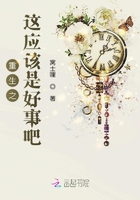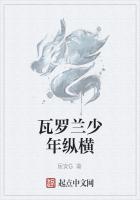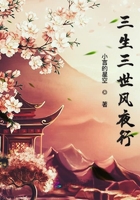Next morning when the clanging of a bell awoke Philip he looked round his cubicle in astonishment. Then a voice sang out, and he remembered where he was.
“Are you awake, Singer?”
The partitions of the cubicle were of polished pitch-pine, and there was a green curtain in front. In those days there was little thought of ventilation, and the windows were closed except when the dormitory was aired in the morning.
Philip got up and knelt down to say his prayers. It was a cold morning, and he shivered a little; but he had been taught by his uncle that his prayers were more acceptable to God if he said them in his nightshirt than if he waited till he was dressed. This did not surprise him, for he was beginning to realise that he was the creature of a God who appreciated the discomfort of his worshippers. Then he washed. There were two baths for the fifty boarders, and each boy had a bath once a week. The rest of his washing was done in a small basin on a wash-stand, which with the bed and a chair, made up the furniture of each cubicle. The boys chatted gaily while they dressed. Philip was all ears. Then another bell sounded, and they ran downstairs. They took their seats on the forms on each side of the two long tables in the school-room; and Mr. Watson, followed by his wife and the servants, came in and sat down. Mr. Watson read prayers in an impressive manner, and the supplications thundered out in his loud voice as though they were threats personally addressed to each boy. Philip listened with anxiety. Then Mr. Watson read a chapter from the Bible, and the servants trooped out. In a moment the untidy youth brought in two large pots of tea and on a second journey immense dishes of bread and butter.
Philip had a squeamish appetite, and the thick slabs of poor butter on the bread turned his stomach, but he saw other boys scraping it off and followed their example. They all had potted meats and such like, which they had brought in their play-boxes; and some had ‘extras,' eggs or bacon, upon which Mr. Watson made a profit. When he had asked Mr. Carey whether Philip was to have these, Mr. Carey replied that he did not think boys should be spoilt. Mr. Watson quite agreed with him — he considered nothing was better than bread and butter for growing lads — but some parents, unduly pampering their offspring, insisted on it.
Philip noticed that ‘extras' gave boys a certain consideration and made up his mind, when he wrote to Aunt Louisa, to ask for them.
After breakfast the boys wandered out into the play-ground. Here the day-boys were gradually assembling. They were sons of the local clergy, of the officers at the Depot, and of such manufacturers or men of business as the old town possessed. Presently a bell rang, and they all trooped into school. This consisted of a large, long room at opposite ends of which two under-masters conducted the second and third forms, and of a smaller one, leading out of it, used by Mr. Watson, who taught the first form. To attach the preparatory to the senior school these three classes were known officially, on speech days and in reports, as upper, middle, and lower second. Philip was put in the last. The master, a red-faced man with a pleasant voice, was called Rice; he had a jolly manner with boys, and the time passed quickly. Philip was surprised when it was a quarter to eleven and they were let out for ten minutes' rest.
The whole school rushed noisily into the play-ground. The new boys were told to go into the middle, while the others stationed themselves along opposite walls. They began to play Pig in the Middle. The old boys ran from wall to wall while the new boys tried to catch them: when one was seized and the mystic words said — one, two, three, and a pig for me — he became a prisoner and, turning sides, helped to catch those who were still free. Philip saw a boy running past and tried to catch him, but his limp gave him no chance; and the runners, taking their opportunity, made straight for the ground he covered. Then one of them had the brilliant idea of imitating Philip's clumsy run. Other boys saw it and began to laugh; then they all copied the first; and they ran round Philip, limping grotesquely, screaming in their treble voices with shrill laughter. They lost their heads with the delight of their new amusement, and choked with helpless merriment. One of them tripped Philip up and he fell, heavily as he always fell, and cut his knee. They laughed all the louder when he got up. A boy pushed him from behind, and he would have fallen again if another had not caught him. The game was forgotten in the entertainment of Philip's deformity. One of them invented an odd, rolling limp that struck the rest as supremely ridiculous, and several of the boys lay down on the ground and rolled about in laughter: Philip was completely scared. He could not make out why they were laughing at him. His heart beat so that he could hardly breathe, and he was more frightened than he had ever been in his life. He stood still stupidly while the boys ran round him, mimicking and laughing; they shouted to him to try and catch them; but he did not move. He did not want them to see him run any more. He was using all his strength to prevent himself from crying.
Suddenly the bell rang, and they all trooped back to school. Philip's knee was bleeding, and he was dusty and dishevelled. For some minutes Mr. Rice could not control his form. They were excited still by the strange novelty, and Philip saw one or two of them furtively looking down at his feet. He tucked them under the bench.
In the afternoon they went up to play football, but Mr. Watson stopped Philip on the way out after dinner.
“I suppose you can't play football, Carey?” he asked him.
Philip blushed self-consciously.
“No, sir.”
“Very well. You'd better go up to the field. You can walk as far as that, can't you?”
Philip had no idea where the field was, but he answered all the same.
“Yes, sir.”
The boys went in charge of Mr. Rice, who glanced at Philip and seeing he had not changed, asked why he was not going to play.
“Mr. Watson said I needn't, sir,” said Philip.
“Why?”
There were boys all round him, looking at him curiously, and a feeling of shame came over Philip. He looked down without answering. Others gave the reply.
“He's got a club-foot, sir.”
“Oh, I see.”
Mr. Rice was quite young; he had only taken his degree a year before; and he was suddenly embarrassed. His instinct was to beg the boy's pardon, but he was too shy to do so. He made his voice gruff and loud.
“Now then, you boys, what are you waiting about for? Get on with you.”
Some of them had already started and those that were left now set off, in groups of two or three.
“You'd better come along with me, Carey,” said the master “You don't know the way, do you?”
Philip guessed the kindness, and a sob came to his throat.
“I can't go very fast, sir.”
“Then I'll go very slow,” said the master, with a smile.
Philip's heart went out to the red-faced, commonplace young man who said a gentle word to him. He suddenly felt less unhappy.
But at night when they went up to bed and were undressing, the boy who was called Singer came out of his cubicle and put his head in Philip's.
“I say, let's look at your foot,” he said.
“No,” answered Philip.
He jumped into bed quickly.
“Don't say no to me,” said Singer. “Come on, Mason.”
The boy in the next cubicle was looking round the corner, and at the words he slipped in. They made for Philip and tried to tear the bed-clothes off him, but he held them tightly.
“Why can't you leave me alone?” he cried.
Singer seized a brush and with the back of it beat Philip's hands clenched on the blanket. Philip cried out.
“Why don't you show us your foot quietly?”
“I won't.”
In desperation Philip clenched his fist and hit the boy who tormented him, but he was at a disadvantage, and the boy seized his arm. He began to turn it.
“Oh, don't, don't,” said Philip. “You'll break my arm.”
“Stop still then and put out your foot.”
Philip gave a sob and a gasp. The boy gave the arm another wrench. The pain was unendurable.
“All right. I'll do it,” said Philip.
He put out his foot. Singer still kept his hand on Philip's wrist. He looked curiously at the deformity.
“Isn't it beastly?” said Mason.
Another came in and looked too.
“Ugh,” he said, in disgust.
“My word, it is rum,” said Singer, making a face. “Is it hard?”
He touched it with the tip of his forefinger, cautiously, as though it were something that had a life of its own. Suddenly they heard Mr. Watson's heavy tread on the stairs. They threw the clothes back on Philip and dashed like rabbits into their cubicles. Mr. Watson came into the dormitory. Raising himself on tiptoe he could see over the rod that bore the green curtain, and he looked into two or three of the cubicles. The little boys were safely in bed. He put out the light and went out.
Singer called out to Philip, but he did not answer. He had got his teeth in the pillow so that his sobbing should be inaudible. He was not crying for the pain they had caused him, nor for the humiliation he had suffered when they looked at his foot, but with rage at himself because, unable to stand the torture, he had put out his foot of his own accord.
And then he felt the misery of his life. It seemed to his childish mind that this unhappiness must go on for ever. For no particular reason he remembered that cold morning when Emma had taken him out of bed and put him beside his mother. He had not thought of it once since it happened, but now he seemed to feel the warmth of his mother's body against his and her arms around him. Suddenly it seemed to him that his life was a dream, his mother's death, and the life at the vicarage, and these two wretched days at school, and he would awake in the morning and be back again at home. His tears dried as he thought of it. He was too unhappy, it must be nothing but a dream, and his mother was alive, and Emma would come up presently and go to bed. He fell asleep.
But when he awoke next morning it was to the clanging of a bell, and the first thing his eyes saw was the green curtain of his cubicle.















